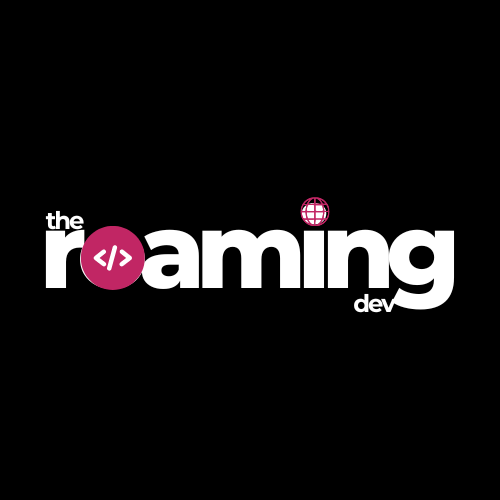Disclaimer:
This website participates in the Amazon Services LLC Associates Program, an affiliate advertising program designed to provide a means for sites to earn advertising fees by advertising and linking to Amazon.com. As an Amazon Associate, we earn from qualifying purchases made through the links provided on this website. This does not affect the price you pay for products.
We only recommend products we genuinely believe will benefit our audience. Our opinions are our own, and we are not influenced by the companies we affiliate with.
Some years ago, it was rare to find a laptop that came with Linux installed. Today, you would be surprised at how many quality laptops are Linux-based.
This makes it an interesting time for developers to use the more secure Windows and macOS alternatives.
Whether you are a seasoned developer or a beginner, these laptops will help you complete your next project with ease.
The best Linux laptop for developers makes it easy to run open-source programs smoothly and seamlessly.
And the good thing is that many of them can also run on Windows.
That is why it might be the best investment for a beginner developer who is not ready to invest in a dedicated machine.
To help you figure out the best Linux laptop for developers, we have compiled a list of top models. We came up with the list after careful testing and comparing configurations and customizations.
Besides this, we analyzed their storage capacity, portability, and screen display options.
Almost all of them are great, but some are easier to use than others. This buyer guide will also share with you some of the things to look after when choosing the right Linux laptop for your developer projects. So, let’s dive in.
The Best Linux Laptops for Developers
1. Lenovo ThinkPad T14s Gen AMD

The Lenovo ThinkPad T14s is the best Linux laptop for developers because of its outstanding performance. This laptop might be ideal for those who prefer dual-boot systems.
With 32GB of RAM and AMD’s Ryzen AI 7 processor, this laptop offers plenty of power to handle any programming task.
Pros
- Thunderbolt 4 support
- WiFi 7 support
- Can handle dual systems
- Eyesafe certified display
Cons
- It lacks an OLED option.
- No 1440P or 4K display option
Price: $1,349
2. System76 Lemur Pro

The Lemur Pro is a lightweight laptop that comes with Linux preinstalled. And just like other System76 models, this gadget uses coreboot open-source firmware.
The importance of this is that you are not restricted to the manufacturer for firmware updates.
What it means is that there is less chance of hidden backdoors that will put your data at risk.
Pros
- Open-source firmware
- Tough, stylish chassis
- Lightweight
- Long battery life
Cons
- Lacks 4K display
- It is not a budget laptop.
Price: $1,599
3. Dell XPS 13

Dell’s XPS 13 was among the first big-brand laptops that came with Linux installed. It is also one of the lightest Linux laptops.
The best thing about the XPS 13 Developer Edition is that it meets the minimum requirements for a developer laptop.
Specifically, it sports a 512 GB SSD, Intel i7-1360P processor, and 16 GB of RAM.
Perhaps the most important news to developers is that the XPS 13 ships with Ubuntu Linux 22.04. So, make sure to choose Ubuntu 22.04 LTS as your default OS when you are on the product page.
It can also run any distro from Arch to Fedora. The only thing that we didn’t like about this Linux laptop is that it lacks some ports.
Pros
- Gorgeous design
- Ultra-thin and lightweight
- Comfortable and responsive keyboard
- High color accuracy
- Several connectivity options, including Thunderbolt 4
Cons
- Supports older versions of Ubuntu
- No HDMI port
Price: $899
4. MALIBAL Aon S1

The MALIBAL Aon series of laptops ship with the latest Ubuntu, Linux Mint, Kubuntu, and Vanilla OS.
If you have heavy programming work, then you will be happy to note that this laptop used liquid metal for proper cooling.
Another good thing is that you can upgrade its RAM to 64 GB, but at an extra cost. Likewise, you can swap out the SSD for up to 8TB.
Pros
- Extended warranty
- Liquid metal cooling
- High-performance components that support demanding programs
- Rush order option
Cons
- Limited repair options
- Not popular with most users
Price: $981.50
5. System76 Oryx Pro Laptop

The Oryx Pro is the best Linux laptop for developers because it is designed for open-source systems.
We also like it because of its lightweight aluminum construction with a matte black finish. The device is available in two screen options, either 15.6 or 17.3 inches.
It is also sleeker and lighter than most Linux laptops. In terms of storage, the Oryx Pro comes with two SATA hard drives that offer 8TB in total.
As for the processing power, the set uses Intel Core i7. The only issue we had with the laptop is that it is an expensive device.
Pros
- Nicely configurable
- Choice of 15.6 or 17.3 bright display
- Comes with powerful internal options
Cons
- Bulky and heavy
- Relatively short battery life
Price: $2,649
6. Tuxedo InfinityBook Pro 14

The InfinityBook Pro 14 is a lightweight laptop that will help you conquer the open-source world. The German-based brand has a reliable history of providing fantastic support for Linux.
Another thing that makes it the best Linux laptop for developers is the support for up to 64GB RAM, an Intel i7 chip, and 4TB of SSD storage.
Another notable highlight is the gorgeous 2,880 x 1,88-pixel-resolution screen that is anti-glare (matte). At 400 nits, it is bright enough for a developer to work anywhere.
Our testing also shows that the InfinityBook Pro has enough power to support most tasks.
Pros
- Thin and ultra-portable
- Good display
- Plenty of computing power
- 5 USB ports
Cons
- No max charge level for the battery in Linux
Price: $1,320
7. Framework Laptop 13

If you are looking for an upgrade, then the Framework Laptop 13 is an ideal Linux machine to buy.
We believe it is the best Linux laptop for developers because it comes with satisfactory specifications.
The device features 32 GB of RAM and a 2 TB SSD. Besides this, it supports both Ubuntu and Arch Linux.
Pros
- Lightweight and portable
- Repairable, upgradable, and user-friendly
- Expanded ecosystem of accessories and parts
- Swappable ports, enabling extreme customization
Cons
- Pre-built systems and expansion cards come at a cost.
Price: $899
How to Choose the Best Linux Laptop for Developers
A decent laptop should have the performance to support your unique needs. And as a developer, you will have even more special needs.
So, you should look closely at every aspect of the laptop before investing your money.
The main key determinants are memory (RAM), processor (CPU), graphics (GPU), and storage. Let’s look at each of them individually:
- CPU: As a developer, there are a few things that you should focus on. Multi-thread processing, core counts, and power ratings are just a few places to start. Generally, multi-core CPUs with multiple processing threads are ideal. Such CPUs will let you manage multiple tasks simultaneously. You should also pay attention to power ratings. The higher the wattage, the better the relative performance. This is usually represented as TDP (thermal design power) or base power for the latest Intel processors. While low-wattage CPUs may be battery-efficient, they may not have the same muscle as the high-powered counterparts.
- RAM: Higher RAM laptops are ideal for developers because they need to support several memory-intensive tasks. So, you should ask yourself how much data you will load into memory. Ideally, anything above 16GB is enough for typical programming work.
- Storage: The best storage drive for programming work is solid-state drives (SSDs), mainly because of their snappier performance. It will even be more important for a laptop that handles several files and programming tools.
- GPU: If you are looking to leverage machine learning for your projects, then you should invest in a GPU-equipped system. The good thing is that most Nvidia GPUs come with their proprietary Tensor and CUDA cores. You can harness these GPUs for all sorts of things.
Frequently Asked Questions (FAQs)
Linux is a free, open-source operating system based on Unix.
This OS is popular with developers because it is able to run software freely.
Apart from this, Linux is an excellent system because of its stability and security.
Some love it because of its all-round customization if you are a pro at your projects.
While no system is immune to slowdowns, Linux is more stable than Windows.
So, it is less likely to experience slowdowns than Windows.
The thing is that Linux doesn’t accumulate background processes, which is synonymous with Windows.
For this reason, many developers have a high regard for this efficient OS.
Typically, it lasts a bit longer on machines and runs efficiently over time.
There are a couple of things that make a computer ideal for programming.
Obviously, speedy performance is needed to boost productivity.
A great display is also ideal because it will impact your capability and comfort.
So, you need a larger, brighter screen that will let you see more information at once.
Closing Remarks
Having gone through this guide, we hope by now you are ready to invest in the best Linux laptop for developers.
The good thing is that most of the models reviewed here can support even the most demanding programming projects.
But be sure to check the specifications and design before buying any Linux laptop.
They should match with your workflow. In any case, you are spending a lot of money on it.
Also Read:



